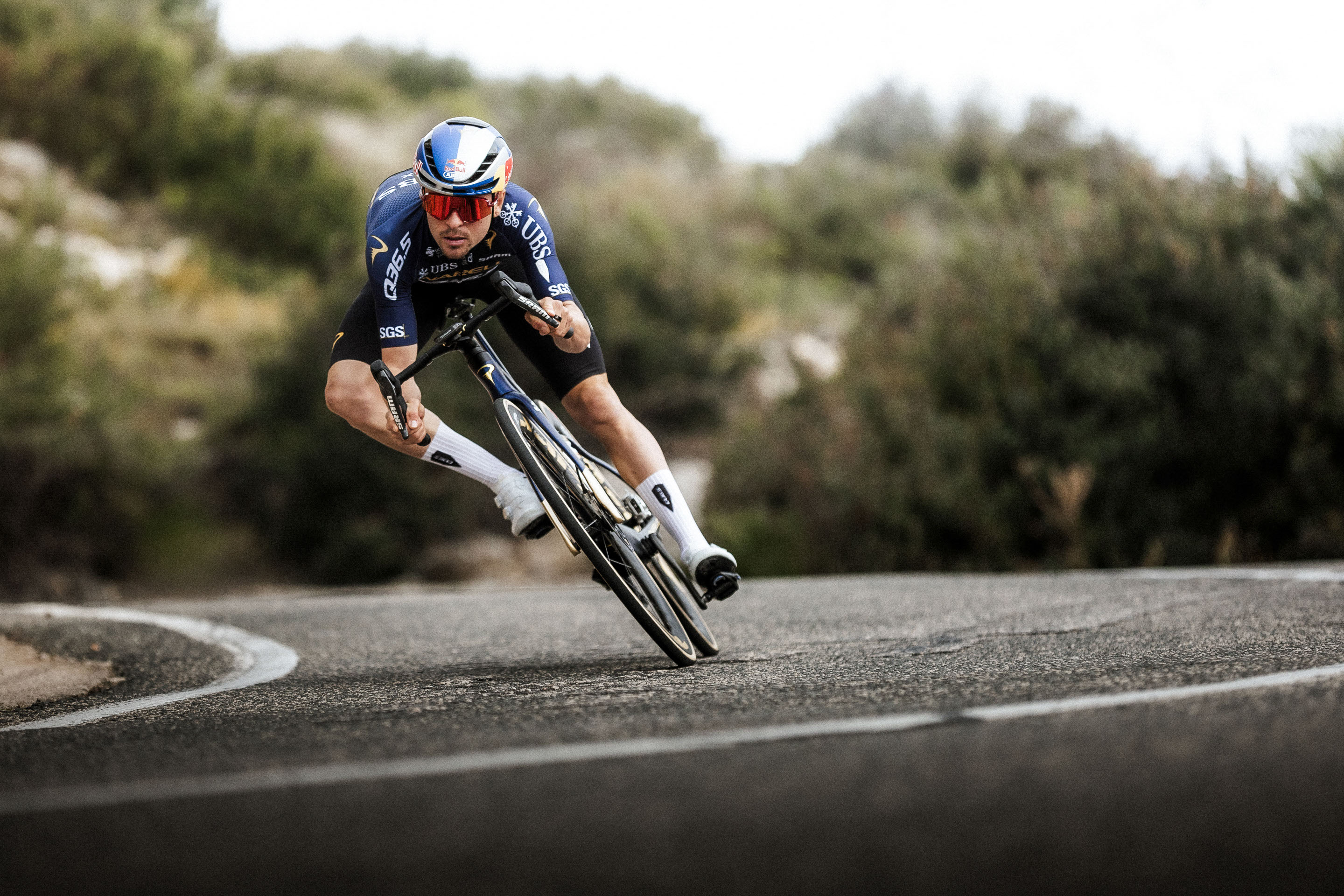Vinokourov goes into retirement with Olympic gold
Lack of radios helped Kazakhstan's captain succeed
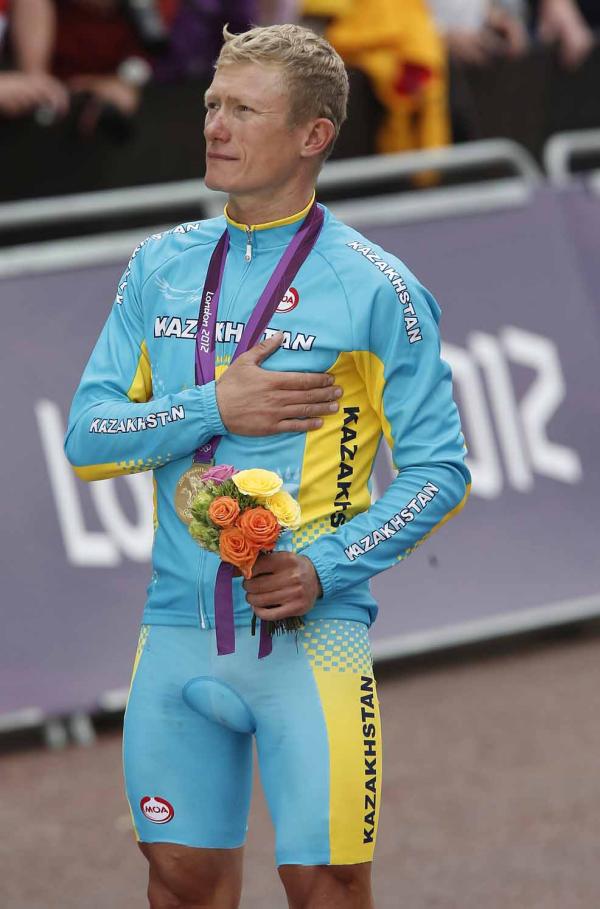
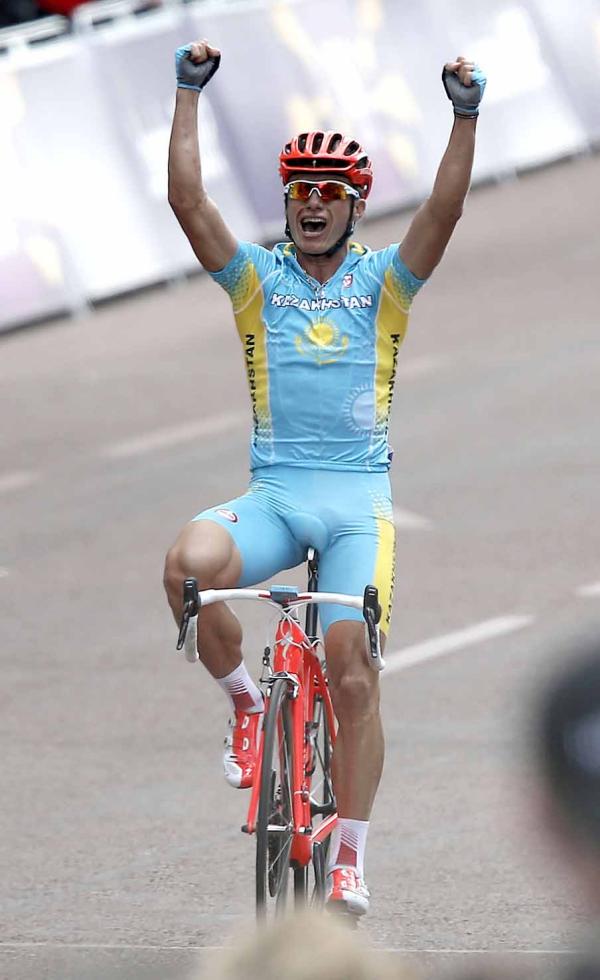
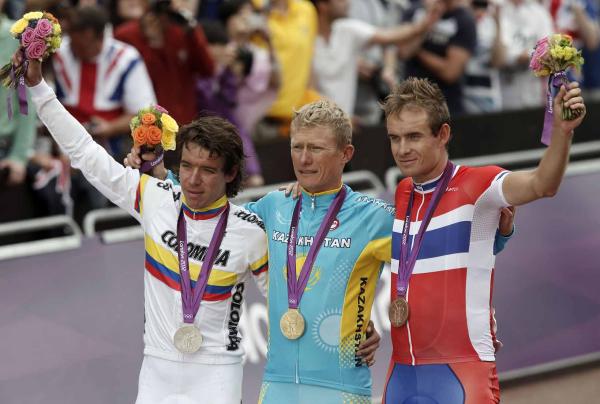
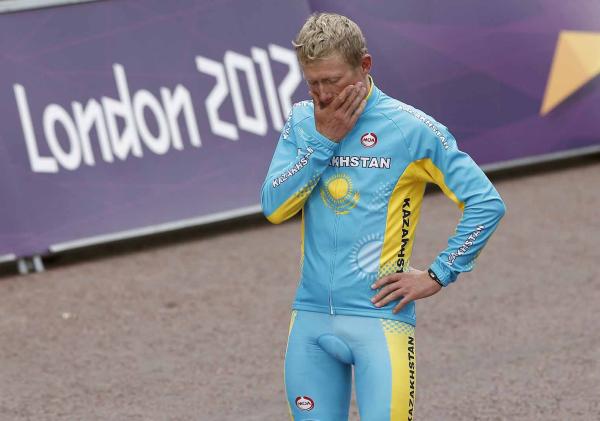
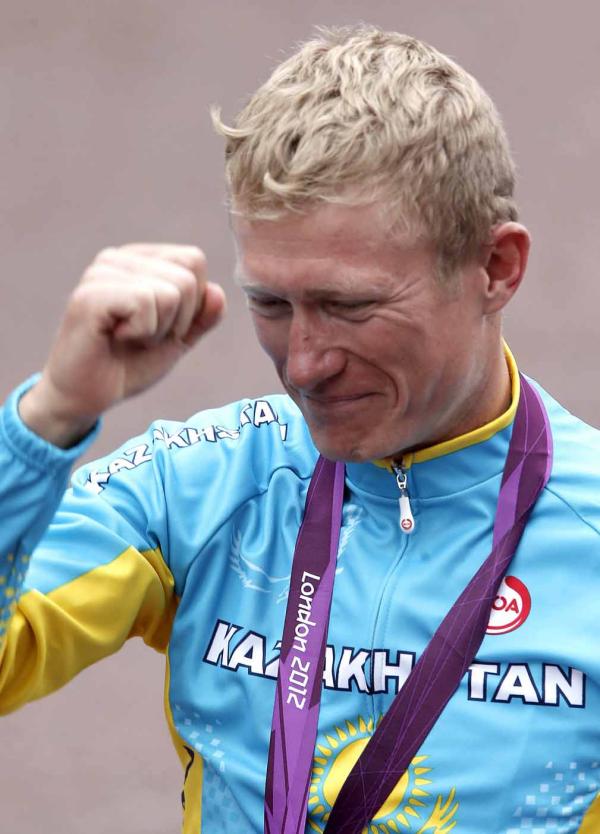
In the 2000 Olympic Games in Sydney, Alexandre Vinokourov made the winning breakaway in the elite men's road race with two of his German trade teammates and had to settle for a silver medal. After one failed attempt in Athens and missing the Beijing Games due to a doping suspension, the cagey captain of Team Kazakhstan at last capped off his checkered career with an Olympic gold medal in London on Saturday.
He confirmed that he still plans to hang up his wheels after the Games.
Vinokourov, 38, was close to retirement after breaking his femur in the 2011 Tour de France, but returned for the 2012 season for several nationalistic reasons: his Astana team needed his points to assure it a place in the World Tour, he hoped to foster the development of his young teammates, and he and his country desired an Olympic gold medal.
Still racing with a metal plate fixed to his femur, Vinokourov has battled through the long recovery and pain to return to the pinnacle of cycling in London. "After so many crashes, returning to cycling was difficult for me," he said. "I was still hoping for a good result. My family and my parents were behind me the entire time."
Coming back to competition three months after his broken leg, Vinokourov seemed to have written off ascending to the level which yielded him past victory in stage races such as the Vuelta a Espana, Dauphiné Libéré, Paris-Nice and Tour de Suisse, and Classics such as the Amstel Gold Race and Liège - Bastogne - Liège in addition to four stages of the Tour de France.
Indeed, he lacked form early in the season, but by stage 13 of the Tour de France, he was back to his old tricks, in the breakaway on stage 13, only his escape fell short. The Olympic gold medal made up for it. "I didn't win any stages of the Tour, but today the dream has come true.
"It's nice to finish off my career with a gold medal. I will still race in the time trial on Wednesday, but I will just spin. I have what I have wanted. I have the gold medal, and I can envision my retirement."
The latest race content, interviews, features, reviews and expert buying guides, direct to your inbox!
There has been much debate over the UCI's decision to ban race radios in all but WorldTour events, with most riders objecting to the rule. Vinokourov said he hardly uses the information from the team car.
"I study the race from the inside and I don't bother with what the directors tell me. Today, I think especially in the last 10km the fact that the major teams such as Germany didn't have radios played into my favor. If this had been a world championship, it would have been a sprint finish because the teams are more complete. But today was actually a calmer race because the limited number of riders and the fact that there were no team radios."
The renaissance of Vinokourov raised some eyebrows, considering his past ban for blood doping which scandalized the 2007 Tour de France. The steely-eyed rider refused to address the topic of doping when asked.
"2007 is a closed chapter. The question was already asked again in 2010 [when he returned from his ban - ed.]. It is not the right time to ask this question again. Cycling has changed and the organisers are doing a lot to fight doping. I'm aware of the problem and I do what I can in this field."

Laura Weislo has been with Cyclingnews since 2006 after making a switch from a career in science. As Managing Editor, she coordinates coverage for North American events and global news. As former elite-level road racer who dabbled in cyclo-cross and track, Laura has a passion for all three disciplines. When not working she likes to go camping and explore lesser traveled roads, paths and gravel tracks. Laura specialises in covering doping, anti-doping, UCI governance and performing data analysis.
